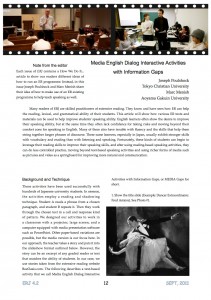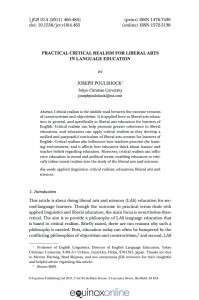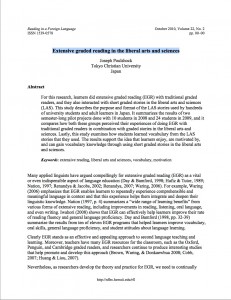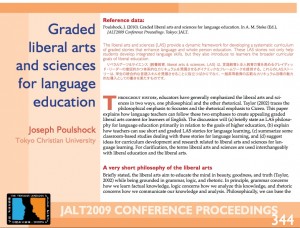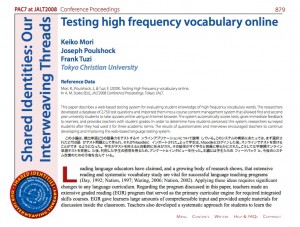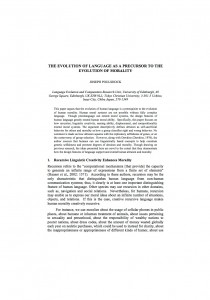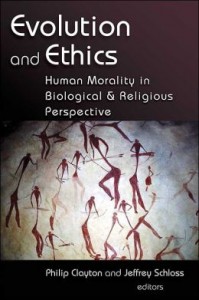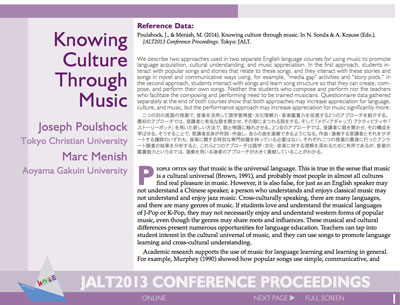 We describe two approaches used in two separate English language courses for using music to promote language acquisition, cultural understanding, and music appreciation. In the first approach, students interact with popular songs and stories that relate to these songs, and they interact with these stories and songs in novel and communicative ways using, for example, “media gap” activities and “story pods.” In the second approach, students interact with songs and learn song structure so that they can create, com- pose, and perform their own songs. Neither the students who compose and perform nor the teachers who facilitate the composing and performing need to be trained musicians. Questionnaire data gathered separately at the end of both courses show that both approaches may increase appreciation for language, culture, and music, but the performance approach may increase appreciation for music significantly more.
We describe two approaches used in two separate English language courses for using music to promote language acquisition, cultural understanding, and music appreciation. In the first approach, students interact with popular songs and stories that relate to these songs, and they interact with these stories and songs in novel and communicative ways using, for example, “media gap” activities and “story pods.” In the second approach, students interact with songs and learn song structure so that they can create, com- pose, and perform their own songs. Neither the students who compose and perform nor the teachers who facilitate the composing and performing need to be trained musicians. Questionnaire data gathered separately at the end of both courses show that both approaches may increase appreciation for language, culture, and music, but the performance approach may increase appreciation for music significantly more.
Post Category → Publications
“Teaching Vocabulary” by Michael Lessard-Clouston
Book Review, Published in VERB Vol. 3 Issue 1, Spring 2014
New teachers need essential knowledge based on sound theory and best practices, which they can readily use in the classroom. Experienced teachers need the same knowledge to refresh themselves in current developments so they can keep growing as teachers.
To meet these needs, TESOL Press has provided a series of short, introductory books (15 at the time of this writing) on various topics, including such titles as “Classroom Research for Language Teachers,” “Teaching Reading,” and “Teaching Vocabulary.” This review focuses on “Teaching Vocabulary” by Michael Lessard-Clouston. . .
Language, Morality, and Evolution
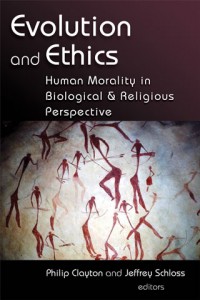 Below is the abstract for my thesis at the University of Edinburgh. There’s a good summary of it in the book Evolution and Ethics.
Below is the abstract for my thesis at the University of Edinburgh. There’s a good summary of it in the book Evolution and Ethics.
Here’s the argument in a nutshell. We live in a selfish world of evolutionary processes. That is, evolution makes us naturally selfish. However, we see altruism operating next to selfishness on various levels in nature, including in human groups. Therefore, in a selfish evolutionary world how do we get altruistic behavior? This is the problem of altruism.
Though we can use language for selfish purposes, I argue that we can also use language to create, promote, and maintain altruistic and ethical culture. The argument approaches the problem of altruism from many angles, but the basic focus is linguistic. Language helps humans create and maintain altruistic and moral codes.
Abstract: Language and Morality: Evolution, Altruism, and Linguistic Moral Mechanisms by Joseph Poulshock, PhD.
This thesis inquires into how human language relates to morality — and shows the ways language enables, extends, and maintains human value systems. Though we ultimately need to view the relation between language and morality from many different perspectives — biological, psychological, sociological, and philosophical – – the approach here is primarily a linguistic one informed by evolutionary theory.
At first, this study shows how natural selection relates to the problem of altruism and how language serves human moral ontogeny. Subsequently, the argument demonstrates how language helps enable cultural group selection. Moreover, as language helps influence human behavior in an altruistic direction beyond in-group non-kin (helping facilitate cultural group selection), we also consider how language can help facilitate altruistic behavior towards out-group non-kin. This therefore raises the prospect of a limited moral realism in a world of evolutionary processes.
With these issues and possibilities in mind, we consider and analyze the properties of language that help extend human morality. Specifically, discussion covers how recursion, linguistic creativity, naming ability, displacement, stimulus freedom, compositionality, cultural transmission, and categorization extend moral systems. Moreover, because language so broadly influences morality, the inquiry extends into how linguistic differences (specifically between English and Japanese) might also cause subtle differences in moral perception between Japanese and English speakers.
Lastly, we consider how moral ideas might take on a life of their own, catalytically propagating in degrees dependent and independent of human intention. That is, we consider how ideas might become memetic. After considering the serious problems of memetics, this approach employs a linguistic version of memetic theory and considers how psychological, social, and linguistic constraints may cause moral memes to attain a memetic state and spread by an independent or semi-independent replicator dynamic. Thus, some moral ideas that we possess through language may actually possess us.
Recent Publications
Here are some recent publications. See the CV for the full list.
Poulshock, J., & Menish, M. (2011). Media English Dialog Interactive Activities with Information Gaps. Extensive Reading in Japan, 4(2), 12-15.
Poulshock, J. (2011). Practical Critical Realism for Liberal Arts in Language Education. Journal of Critical Realism, 10(4), 465-484.
Poulshock, J. (2010). Extensive Graded Reading in the Liberal Arts and Sciences. A paper published in the Journal Reading in a Foreign Language, October 2010, Volume 22, No. 2. pp. 304–322.
Poulshock, J. (2009). Graded liberal arts and sciences for language education. In A. M. Stoke (Ed.), JALT 2009 Conference Proceedings pp. 344-351.
Mori, K., Poulshock, J., & Tuzi, F. (2008). Testing high frequency vocabulary online. In A. M. Stoke (Ed.), PAC7 at JALT 2008 Conference Proceedings pp. 879-887.
Poulshock, J. (2006). Language as a precursor to the evolution of morality. In Cangelosi, A., Smith, K. and Smith A. (Eds.), The Evolution of Language: Proceedings of the 6th International Conference. World Scientific Publishing Company, 275-282.
Poulshock, J. (2004). The leverage of language on altruism and morality. In Clayton, P., & Schloss, J. P. (Eds.), Evolution and ethics: Human morality in biological and religious perspective. Grand Rapids: Michigan: Eerdmans, 114-131.
